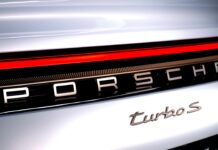Honda has reintroduced the Prelude nameplate, but the 2026 model bears little resemblance to its predecessors. Priced at $42,000 (plus destination fees), the new two-door hybrid coupe is stirring debate: is this a calculated move to carve out a unique market segment, or has Honda misjudged what buyers want?
The Price Tag: A Shock to the System
The Prelude’s $43,195 price tag immediately draws comparisons to more performance-focused rivals. While affordable coupes are rare, the Prelude’s cost exceeds that of the Toyota GR86 ($30,800) and Ford Mustang Ecoboost ($32,320), both of which offer significantly more horsepower. Even Nissan’s Z ($42,970) delivers a twin-turbo V6 packing 400 hp for just $970 more.
This pricing strategy raises a critical question: is Honda betting on nostalgia alone, or is there a genuine demand for a hybrid coupe at this price point? The lack of direct competitors suggests Honda is intentionally targeting a niche market, but the risk of alienating performance enthusiasts is real.
Hybrid Power, Premium Price
Under the hood, the Prelude features a 200-hp hybrid powertrain combining a 2.0-liter gas engine and twin electric motors. While efficient (estimated at 44 mpg combined), this output lags behind competitors. Even Honda’s own Civic Si ($30,995) offers a more engaging driving experience for less money.
The Civic Sport Hybrid ($29,295) provides the same basic hybrid setup, highlighting the premium attached to the Prelude’s coupe styling. Upgrading to the Civic Sport Touring Hybrid with leather and premium sound still costs $3,000 less than the base Prelude.
A Calculated Gamble?
Honda defends the price by pointing out that, adjusted for inflation, the 2026 Prelude is actually cheaper than a 2001 model. However, market conditions have changed dramatically since then. The current automotive landscape favors value and performance, making the Prelude’s premium positioning a gamble.
The real target demographic may not be young enthusiasts, but older buyers drawn to the nostalgic nameplate and the promise of a comfortable, efficient coupe. Japanese dealers have reported strong interest from Gen X and Baby Boomers, suggesting that Honda may be banking on a demographic less concerned with raw horsepower.
What’s Next?
Rumors suggest that higher-performance versions—a Type S and a Type R—are in development. The Type R, potentially arriving in 2027 with over 300 hp, could address the current model’s power deficit. However, emissions regulations and internal competition with the Civic Type R might limit its global rollout.
For now, the 2026 Honda Prelude stands as a bold experiment. Whether it succeeds depends on whether enough buyers are willing to pay a premium for style, efficiency, and a name from the past. The question remains: is this a smart move to fill an underserved niche, or a recipe for another expensive flop?



































